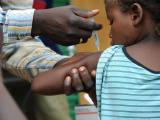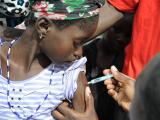A report in Clinical Infectious Diseases describes the largest US outbreak of fungal meningitis caused by Fusarium species, which occurred among residents who received epidural anesthesia for cosmetic surgeries with the same anesthesiologist in Matamoros, Mexico, in 2023.
Of the 24 patients sickened, 12 died, which the authors say underscores the need for clinicians to suspect fungal meningitis in patients with negative bacterial and viral cultures and molecular testing who underwent epidural anesthesia for any reason.
"Healthcare-associated fungal meningitis is rare but can cause high case-fatality rates and long-term complications," they wrote. "Fungal meningitis is challenging to identify and treat because it has non-specific symptoms and can be misdiagnosed as a bacterial or viral infection."
Most common procedure was liposuction
The US Centers for Disease Control and Prevention (CDC)-led team investigated the outbreak after learning that two women, ages 34 and 52, were hospitalized in Texas after having epidural anesthesia for cosmetic procedures at one of two Matamoros clinics. One of the two patients developed an intracranial hemorrhage and died shortly after admission.
Public health officials identified all US patients known to have had surgery at these clinics from January 1 to May 13, 2023, after which Mexican authorities shut down the clinics. The most common procedure performed was liposuction (21 patients), and the most common symptoms were headache, nausea, and stiff neck.
Of the 18 patients who completed a questionnaire on motivation for seeking cosmetic surgery outside of the United States, half cited high US costs. Most were referred to the Mexican clinics or clinician by a relative or friend (33%), followed by social media ads (17%).
Of the 223 potentially exposed US residents, 170 responded to officials, with 61% reporting undergoing epidural anesthesia at the clinics, and 29% following up with a diagnostic lumbar puncture. Whole-genome sequencing of the isolates identified Fusarium solani species complex in 24 patients (23 women), 12 of whom died. The isolates from both clinics were closely related genetically.
Officials used epidemiologic and clinical data to update diagnostic and clinical recommendations for outbreak response, including prescription of the experimental antifungal drug fosmanogepix. Eighteen patients were given other antifungal drugs, half of whom died. Seven patients received fosmanogepix, and six of them survived.
Dangers of medical tourism
The researchers noted that Matamoros abuts Texas, where some areas have high rates of uninsured people. "The lack of patient insurance or emergency funding for coverage of diagnostics, prolonged hospitalization, and treatment may have delayed seeking care," they wrote. "Improved resource mobilization and support during small scale, local public health emergencies can improve outbreak responses and patient outcomes."
Increasing risk communication in patients’ primary languages about medical tourism can help reduce the likelihood of U.S. residents being affected by future outbreaks.
For instance, the Mexican government offered free testing and treatment for Mexican citizens exposed to the fungus during epidural anesthesia amid the outbreak.
"Importantly, increasing risk communication in patients’ primary languages about medical tourism can help reduce the likelihood of U.S. residents being affected by future outbreaks," the authors wrote. "It can also encourage more patients to seek medical clearance from their U.S. provider, which could improve understanding of the risks associated with surgical procedures abroad and promote consideration of the safety standards of foreign medical facilities."
















